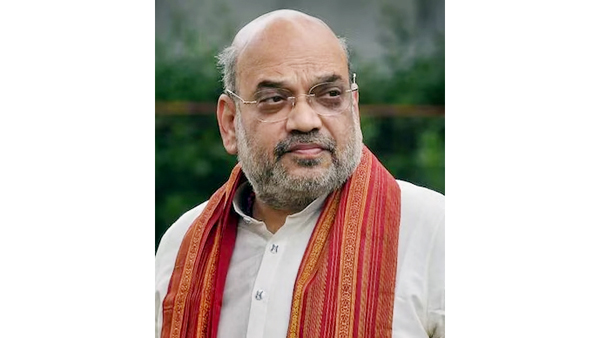Attendees include LG, top Army officials, CAPFs, and Police
Excelsior Correspondent
JAMMU, Dec 14: On December 19, Union Home Minister Amit Shah will lead a high-level meeting to assess the security conditions in Jammu and Kashmir, taking place in the national capital.
This will be the first security review of the union territory since the Omar Abdullah government resumed office on October 16, although the Home Department has remained under the jurisdiction of Lieutenant Governor Manoj Sinha.
Join the Daily Excelsior channel on WhatsApp
The meeting is expected to include attendance from the Lieutenant Governor, Chief Secretary Atal Dulloo, Home Secretary Chandraker Bharti, Director General of Police (DGP) Nalin Prabhat, and Additional DGP CID Nitish Kumar.
The primary focus will be on urgent security challenges, particularly the elimination of terrorists during the winter months across various regions of Jammu and Kashmir.
Additionally, the attendees will review strategies aimed at maintaining peace and stability within the union territory.
Key figures such as National Security Advisor Ajit Doval, Union Home Secretary Govind Mohan, Intelligence Bureau Director Tapan Deka, and senior Army officials including Chief of Army Staff General Upendra Dwivedi, as well as Directors General of CAPFs, are anticipated to participate in this meeting. This assembly comes nearly five months after Shah presided over a comparable high-level security review in New Delhi on June 16.
The significance of this meeting aligns with the commitment of Prime Minister Narendra Modi’s Central Government to set a precedent in combating terrorism through innovative methods.
This year has seen a series of terror incidents across various districts in the Jammu region, including Doda, Kishtwar, Udhampur, Kathua, Rajouri, and Poonch, amidst reports suggesting that several groups of Pakistani terrorists are concealing themselves in hillside areas, targeting security forces, Village Defence Guards, and civilians.
The strategic high-level meeting is expected to devise a plan to neutralize these terrorists, particularly during winter when snowfall will push the militants down from the mountains to the plains.
While the exact number of terrorists hiding in the Jammu region’s mountainous areas remains uncertain, reports indicate they typically operate in small groups of three to four, residing in either natural caves or abandoned shelters.
The infiltrators are largely of Pakistani origin, having crossed the border to access mountain regions in Kathua, Udhampur, Kishtwar, Doda, Rajouri, Poonch, and Reasi districts. They are reportedly supported by Over Ground Workers (OGWs) who provide essential supplies including food and other necessities.
Recently, Jammu police conducted significant operations across nearly the entire region to dismantle the “support base” facilitating these terrorists, resulting in several detentions, including the arrest of two women under the Public Safety Act (PSA).
During the previous meeting, the Home Minister instructed security forces to emulate the successes achieved in the Kashmir valley through comprehensive area control strategies and a zero-terrorism agenda in the Jammu division.
Shah also urged all security agencies in earlier meetings to operate in a mission-driven approach and ensure prompt, coordinated responses. He highlighted the importance of seamless collaboration among security entities, identifying at-risk areas, and addressing their specific security needs.
With a steadfast reiteration of a zero-tolerance stance towards terrorism, the Home Minister has consistently affirmed that “the Government will spare no effort in eradicating terrorism from Jammu and Kashmir.”


Leave a Reply